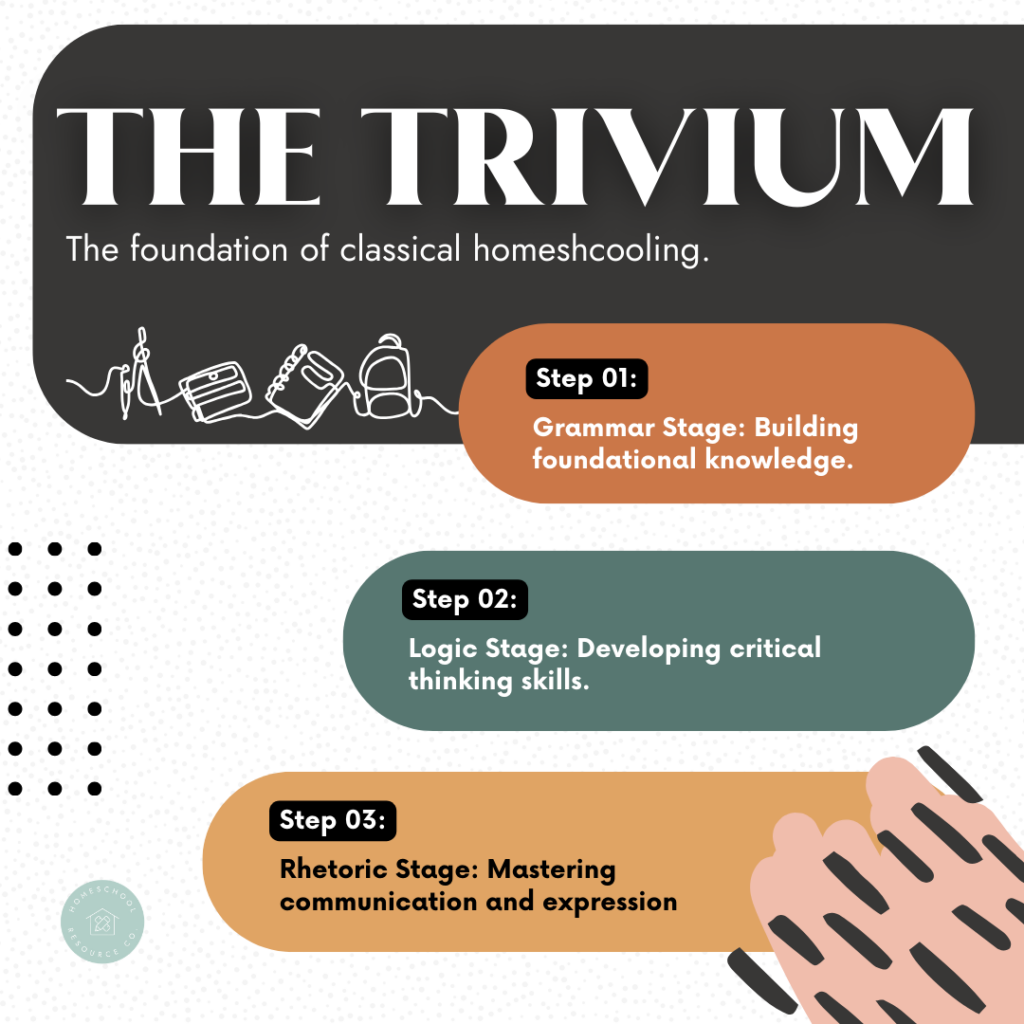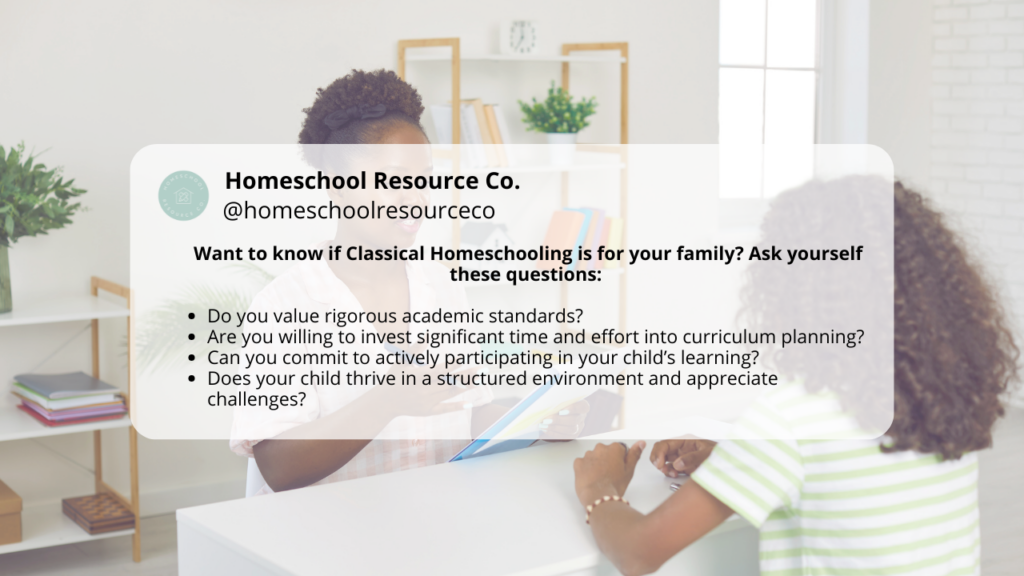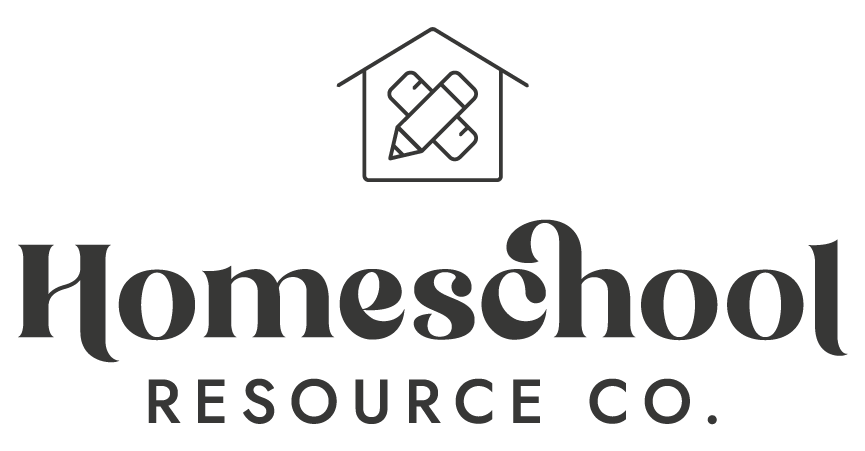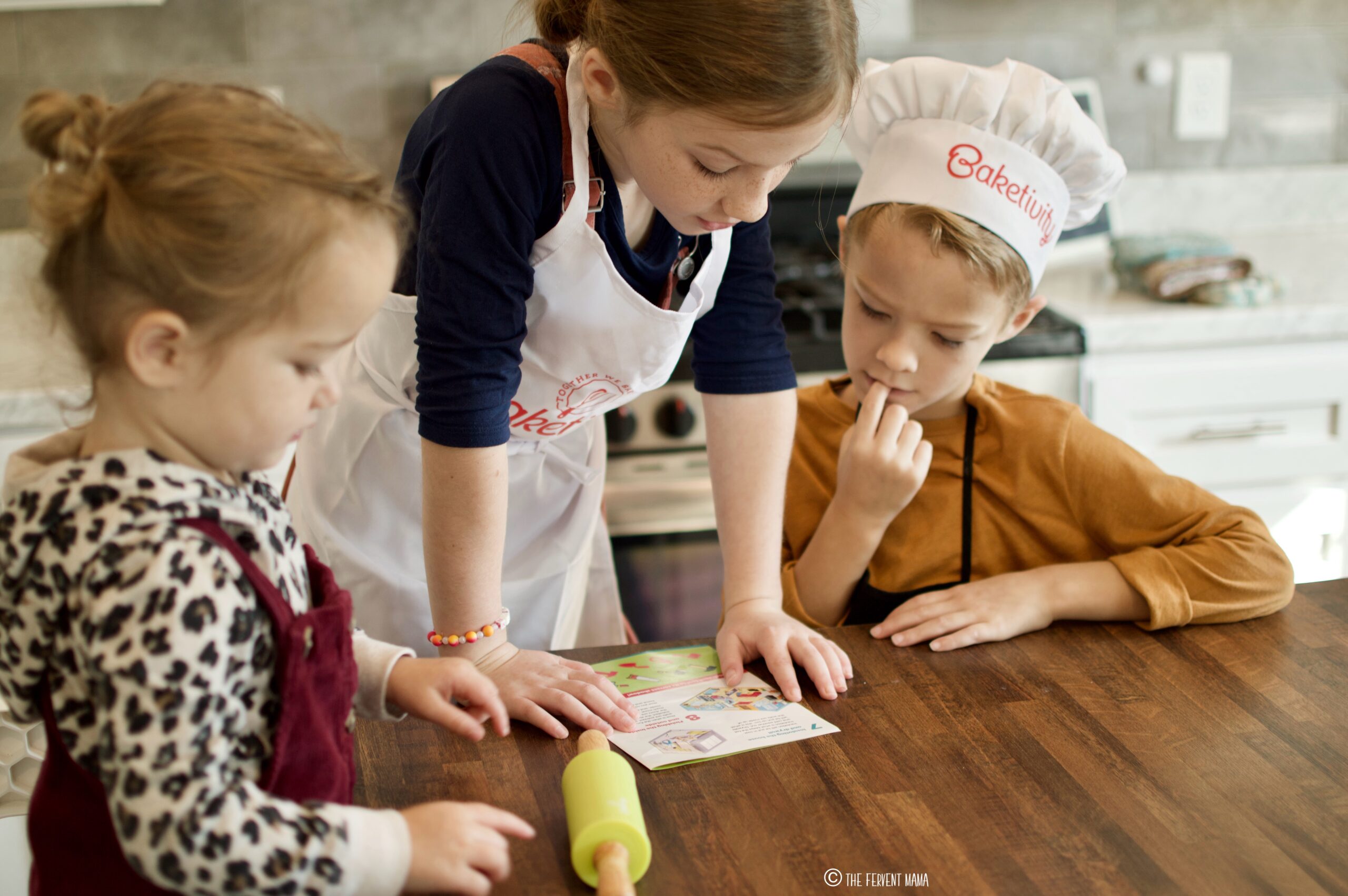Is Classical Homeschooling for You? Learn about the classical education model.
Of all the homeschool styles and methods, how do you know which is right for you? Are you a traditional homeschooler? Maybe you're eclectic. There's the possibility that you may even be Waldorf or fall into the Montessori category.
There is so much to consider when it comes to figuring out your perfect homeschool. For some people, it even takes years! In fact, more homeschoolers say that it took them at least 4 years to discover what works for their families and cultivate a consistent groove.
But take heart! That doesn't mean that their homeschool experience was bad! As long as you're learning and growing, you're doing it right!
Before you dive in and make a decision, let's discover if classical homeschooling is for you! Discover the classical education method and see if it aligns with your homeschooling values!

What is Classical Homeschooling?
Classical homeschooling is rooted in ancient educational practices that emphasize critical thinking, eloquent expression, and a deep understanding of the world's great ideas.
The classical education model promotes timeless values and virtues while focusing on classical literature, history, and languages.
This model follows a three-part process known as the Trivium, which aligns with the natural stages of a child's cognitive development: Grammar, Logic, and Rhetoric.
The Trivium of Classical Homeschooling Explained
The Trivium is the foundation of classical homeschooling and is divided into three parts or stages of learning;
- Grammar Stage: Building foundational knowledge
- Logic Stage: Developing critical thinking skills
- Rhetoric Stage: Mastering communication and expression

The Grammar Stage
In the grammar stage, young children are like sponges, eager to absorb information. This phase focuses on building foundational knowledge through memorization and repetition. Think of it as laying the bricks for a strong educational foundation. Children learn facts about language, history, math, and science through songs, chants, and stories.
During these formative years, children's brains are wired to retain large amounts of information. By capitalizing on their natural abilities to memorize and recall facts, we set them up for success in later stages.
The Logic Stage
As children enter adolescence, they begin to question the world around them more critically. This is where the logic stage comes into play. Students learn how to think logically and analytically by engaging in debates, solving complex problems, and studying formal logic.
Adolescents are naturally inquisitive and enjoy challenging ideas. By teaching them how to reason effectively, we empower them to understand not just what they know but why they know it.
The Rhetoric Stage
The final stage of classical education focuses on rhetoric—articulating thoughts clearly and persuasively. This stage is also known as the dialectic stage. High school students refine their communication skills through writing essays, delivering speeches, and participating in discussions.
At this age, students are ready to express their ideas with confidence and clarity. By honing their rhetorical skills, we prepare them for college-level work and beyond.
Through the stages of the Trivium, students of all ages implement these lost tools of learning that classical educators discovered in ancient Greece.
With the failures of modern education, it seems as though Western culture may need to turn back to the Christian principles and roots of a classical style of learning.
Benefits of Classical Homeschooling

So why choose classical homeschooling? Here are some compelling reasons that may resonate with you as you explore different homeschool methods.
- Cultivates Critical Thinking
Classical education goes beyond rote memorization; it encourages students to analyze information deeply. By fostering critical thinking from an early age, we help our children become independent thinkers who can navigate complex issues with ease. - Develops Strong Communication Skills
Classical education goes beyond rote memorization; it encourages students to analyze information deeply. By fostering critical thinking from an early age, we help our children become independent thinkers who can navigate complex issues with ease. - Provides a Well-Rounded Education
Classical education covers a broad range of subjects including literature, history, philosophy, mathematics, and sciences. This holistic approach ensures that students gain a comprehensive understanding of various disciplines while seeing the interconnectedness between them. - Encourages Lifelong Learning
By instilling a love for learning early on through engaging materials like classic literature and historical texts—classical homeschooling nurtures curiosity that lasts well beyond graduation day!
Another perk of the classical model of education is that is usually follows a Christian worldview or is talked about as a classical Christian education.

Challenges of Classical Homeschooling
Is the classical homeschool method sound good to you right now? While there are many benefits associated with classical homeschooling—it’s important also to consider potential challenges. Let's look over the challenges of classical homeschooling.
Time Intensive Planning
Unless you use a box curriculum or piece together your own classical curriculum, then classical homeschooling can be demanding on the parent! In terms of content coverage, and preparation time required parents may find themselves spending considerable hours planning lessons and gathering resources to ensure adherence to high standards set by this educational model.
Requires Parental Involvement & Expertise
Given the depth and breadth of topics covered within the framework of the classical homeschool approach, parental involvement is essential in guiding children through each Trivium stage.
Through a strong parent-child relationship, the parent serves as a mentor and guide that uses the Socratic method to develop critical thinking skills and fostering a love of learning
Some parents might feel overwhelmed especially if they lack background-specific subject areas being taught. Fortunately, there numerous support groups and online communities available to provide assistance and encouragement along the way!
Adapting the Model is Hard
Even if you feel as though your homeschool mission or philosophy aligns with the classical approach to homeschooling, it isn't always the best fit for every family.
Depending on your child's learning style, the rigorous approach that the classical method revolves around can be a stumbling block for your child. Adapting the classical model to your particular needs can be hard.
Is Classical Homeschooling Right For Your Family?

Deciding whether to adopt classical homeschooling depends largely upon individual family dynamics, educational goals, values, and aspirations you hold dear.
Ask yourself the following questions to determine if this path aligns with your family's homeschool vision:
- Do you value rigorous academic standards?
- Are you willing to invest significant time and effort into curriculum planning?
- Can you commit to actively participating in your child’s learning?
- Does your child thrive in a structured environment and appreciate challenges?
If answered yes to the majority of these questions then perhaps classical homeschooling could indeed be an ideal choice! Remember every family is unique and what works one may necessarily work another.
Ultimately, the decision lies in your hands. Trust your instincts and embrace the journey wholeheartedly knowing whatever path you choose is best for your family!
And if it isn't, reevaluate! Your family's relationships and your children's excitement for learning are always top priorities!
How To Begin Classical Homeschooling
Once you decide that you want to be a classical homeschooler, you need to begin searching curriculum. Here are some important questions to ask yourself to when you are researching curriclulum.
- Do I want to be the teacher?
- Do I want to use digital resources and tools?
- Is having a community or co-op important to me?
- Do I want something that is open and go?
- Do I feel confident in my abilities to teach all subjects?
- Do I want to employ help (either digital or in-person) for some aspects of learning?
When you understand that, you can move on to the below paragraphs where we talk about the most popular classical homeschool curricula.
Classical Homeschool Curriculum
There are so many options for classical homeschool curriculum, you may be wondering where you should start. But, let us help! We've listed some of the best classical education homeschooling curricula so you can stop wasting time scouring the internet and coming up short!
Veritas Press

Veritas Press provides homeschoolers with a Classical curriculum option that's rigorous and reformed. They offer live, online classes, self-paced courses, and parent-led options.
Veritas Press is a notable classical education curriculum that provides a well-rounded Christ-centered education across all subjects.
Memoria Press

Memoria Press’ beautiful and comprehensive classical Christian curriculum provides the tools for mastering Great Books and Liberal Arts, the essential elements of classical education.
Memoria Press offers a Classical Core Curriclula for every grade level with daily lesson plans that you can customize to fit your needs!
Classical Conversations

Classical Conversations is a Christian homeschool curriculum that is rooted in the classical model but utilizes a co-op style community that is local to you.
With Classical Conversations, you get the curricula, tools, and support that you need to successfully homeschool using the classic model from K-12.
My Fathers World

My Father's World touts itself as a mult-style homeschool curriculum choice. They say
“My Father's World Christian homeschool curriculum combines the best of Charlotte Mason's ideas, Hebraic classical education, and unit studies with a biblical worldview and global focus. We have worked hard to make homeschooling as easy as possible with our God-centric curriculum mirroring the Greco-Roman classical approach of grammar, logic, and rhetoric.”
Classical Academic Press

If you're considering Classical Academic Press, you've found a great option to begin your classical homeschooling journey!
The mission of Classical Academic Press is “Classical Subjects Creatively Taught” which includes Latin, Logic, Writing & Rhetoric, Grammar, Greek, Spanish, Poetry, Literature Guides, and more.
Book Recommendations that Explore Classical Education
- The Well Educated Mind: A Guide to Classical Education at Home by Susan Wise Bauer
“In The Well-Educated Mind, Susan Wise Bauer provides a welcome and encouraging antidote to the distractions of our age, electronic and otherwise. In her previous book, The Well-Trained Mind, the author provided a road map of classical education for parents wishing to home-school their children, and that book is now the premier resource for home-schoolers.” - Awakening Wonder: A Classical Guide to Truth, Goodness & Beauty by Steve Turley
“With Awakening Wonder, Steve Turley demonstrates that precisely such a recovery is at the heart of the current classical education renewal. Once again, Truth, Goodness, and Beauty are celebrated as those objective values that are essential for cultivating students as flourishing human beings. In these pages, you will discover the history and development of these transcendent values and how they redeem our senses and sanctify our imaginations. Teachers will also learn how to incorporate these values into their teaching to awaken awe and wonder in both themselves and their students.” - The Liberal Arts Tradition by Kevin Clark, DLS, and Ravi Scott Jain
“In this latest release, authors Dr. Kevin Clark and Ravi Jain join with David Goodwin (Director, Association of Classical Christian Schools) to explore and discuss practical ways to implement the educational philosophy discussed in The Liberal Arts Tradition. This update includes practical guides and checklists, insightful essays, and other resources that will aid educators in directing students in the pursuit of the true, the good, and the beautiful!”
Ready to explore classical homeschooling further? Join our community of passionate homeschoolers, access our digital resources, and start your journey today!






